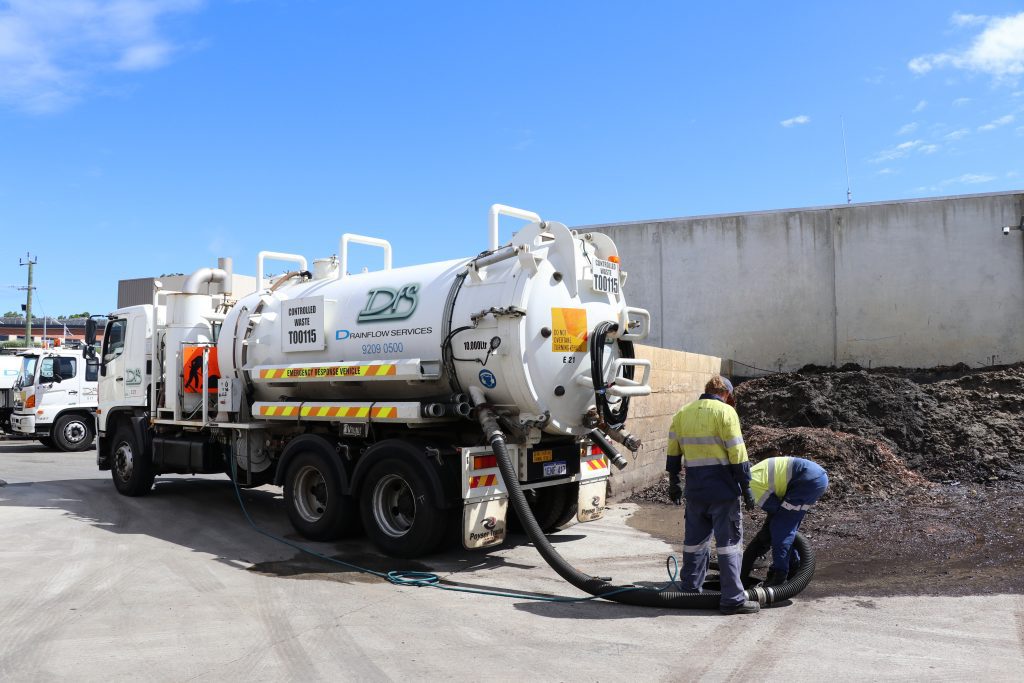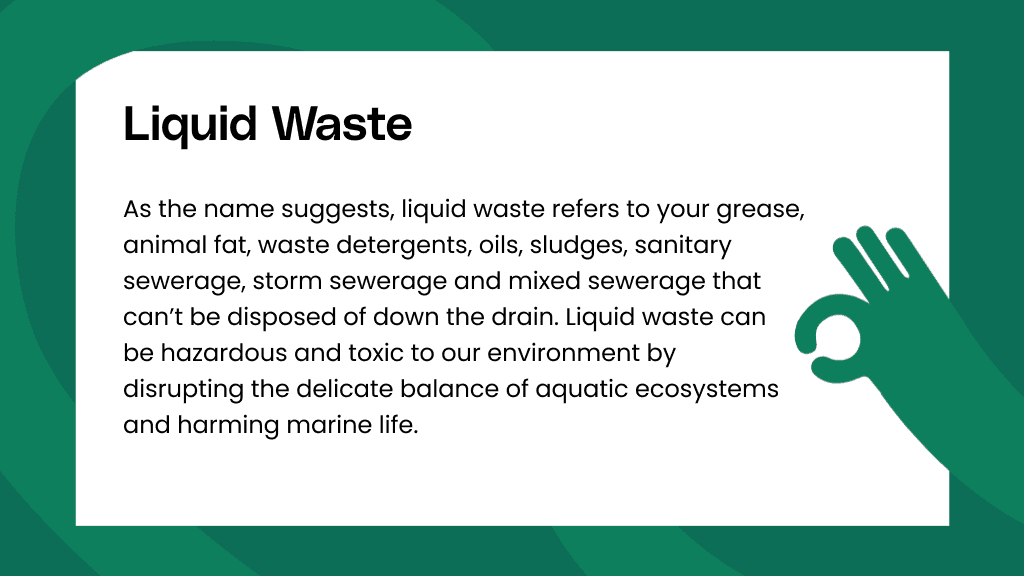See This Report about Reclaim Waste
See This Report about Reclaim Waste
Blog Article
The Basic Principles Of Reclaim Waste
Table of ContentsThe Of Reclaim WasteThe Only Guide for Reclaim WasteSome Known Facts About Reclaim Waste.The Buzz on Reclaim WasteThe Facts About Reclaim Waste Uncovered
Discover the types, events, and forms of fluid waste. Domestic sewage waste refers to the waste and products from a domestic septic system. This kind of waste is produced by humans in residences, schools, and various other structures. This only includes septic systems that have a drain field. The correct management and disposal of residential sewage waste require fluid waste to be transferred to a sewer treatment plant where the appropriate techniques and equipment are put on cleanse and deal with waste.
Industrial waste typically includes potential hazards, such as combustible products or a blend of liquid and strong waste products, and needs a more innovative and comprehensive disposal procedure. The disposal of commercial waste typically includes the purification of waste prior to transportation to make sure safe and correct disposal. Industrial waste is produced from results and drainage of commercial procedures and manufacturing.
This kind of waste can not use the same sewage administration transport or procedures as septic or industrial liquids. The hazardous waste administration procedure needs the inspection and screening of liquid waste before it goes through the disposal procedure (liquid waste removal). Overflow waste is the fluid waste that originates from drainage and excess stormwater in very populated locations or cities
Runoff waste can trigger contamination and flooding otherwise managed properly. Find out more regarding drain cleaning and waste administration. Making sure correct waste management can avoid catastrophes and decrease ecological damage. Both people in property settings and professionals in commercial or production markets can gain from recognizing the procedures and laws of fluid waste management.
Reclaim Waste Fundamentals Explained
Call PROS Services today to discover our waste monitoring and disposal solutions and the proper methods to look after the fluid waste you create.
(https://www.find-us-here.com/businesses/Reclaim-Waste-Laverton-North-Victoria-Australia/34166924/)This so-called 'wastewater' is not only an essential resource yet, after therapy, will be released to our land, waterways or the ocean. Made use of water from commodes, showers, baths, cooking area sinks, laundries and commercial processes is understood as wastewater.

water utilized to cool down machinery or clean plant and tools). Stormwater, a type of wastewater, is runoff that moves from farming and city areas such as roofings, parks, gardens, roadways, paths and rain gutters right into stormwater drains, after rainfall. Stormwater moves without treatment directly to regional creeks or rivers, at some point reaching the sea.
The Ultimate Guide To Reclaim Waste
In Queensland, most wastewater is treated at sewage therapy plants. Wastewater is delivered from residential or commercial websites with a system of drains and pump stations, understood as sewage reticulation, to a sewage treatment plant.
The Department of Natural Resources recommends regional federal governments regarding handling, operating and preserving sewerage systems and treatment plants. In unsewered locations, city governments might need owners to install specific or family sewage therapy systems to deal with domestic wastewater from toilets, kitchens, restrooms and laundries. The Division of Natural Resources authorises using household systems when they are confirmed to be efficient.
A lot of stormwater obtains no treatment. In some brand-new subdivisions, therapy of some stormwater to eliminate litter, sand and crushed rock has started utilizing gross pollutant catches. Wastewater therapy takes place in four stages: Gets rid of strong matter. Bigger solids, such as plastics and other items incorrectly released to drains, are removed when wastewater is gone through screens.
Wastewater after that flows into big tanks where solids clear up and are removed as sludge. Oil and residue are skimmed from the surface. Utilizes little living organisms called micro-organisms to break down and remove remaining dissolved wastes and fine fragments. Micro-organisms and wastes are included in the sludge. Eliminates nitrogen and phosphorus nutrients that could cause algal flowers in our rivers and threaten water life.
The Facts About Reclaim Waste Revealed
Nutrient elimination is not readily available in all sewer therapy plants due to the fact that it requires expensive specialist tools. It is coming to be more common in Queensland. Clear liquid effluent produced after therapy might still contain disease-causing micro-organisms. If Related Site this effluent is released into waterways such as rivers or the sea, the micro-organisms will ultimately pass away out.

Many wastewater moves right into the sewage system. Under the Act, regional governments carry out approvals and permits for ecologically pertinent activities (Periods) involving wastewater releases that might have a neighborhood effect.
The Facts About Reclaim Waste Revealed
Tracking supplies accurate info concerning water quality and can validate that licence problems are being fulfilled. The information gotten via monitoring supplies the basis for making water quality decisions.
Report this page